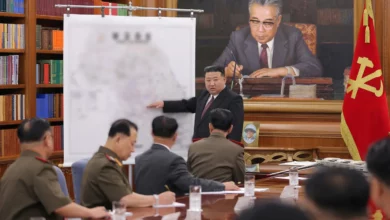Washington – US and Afghan officials are pushing ahead with talks on a deal to define the long-term American role in Afghanistan, possibly easing worries among some Afghans that Washington will walk away when foreign forces go home.
This week, the government of Afghan President Hamid Karzai submitted a counterproposal to a US draft of the "strategic partnership" agreement, Afghan officials said.
The agreement, expected to be concluded in coming months, would outline the US role in Afghanistan as President Barack Obama gradually withdraws the 100,000 US soldiers now locked in a fierce battle with the Taliban and other militants.
Fresh from the Navy SEAL raid that killed Al-Qaeda leader Osama bin Laden, and facing budget pressures at home, Obama looks set to announce an initial troop withdrawal starting in July that could be larger than earlier expected.
If successful, the deal might ease worries among those Afghans who fear the United States will pull out too quickly, leaving a weak, impoverished government to fend off militants, and those who worry the foreign forces they see as occupiers will never leave.
But the negotiations also highlight the strains in an asymmetric relationship in which Karzai has drifted further from the West and Western doubts have grown about a government widely seen as corrupt and inept.
"Because of the current absence of clarity about long term US goals…the Afghans are looking at this agreement to provide strategic clarity anchored in as many detailed, long-term commitments as possible," said Ronald Neumann, who was US ambassador to Afghanistan from 2005 to 2007.
"The spoiler would be if it wouldn't make any commitments about the longer term relationship," he said.
Eklil Hakimi, the recently arrived Afghan ambassador to the United States, said the agreement would include points related to trade, cultural exchange, and security.
It remains unclear whether the deal would explicitly refer to possible US military bases in Afghanistan following the gradual US withdrawal and the transition to Afghan security control that is scheduled to conclude at the end of 2014.
Karzai has said the possibility of long-term US bases can only be addressed once peace has been achieved and would require wide backing from Afghan politicians.
"Both sides have shared their views, and what they demand from the other side, and through negotiations they have to sort out to what extent they want to compromise," Hakimi said in an interview this week.
"We want to be a real strategic partner, to play a role for the stability of region, not only in security but in providing job opportunities and economic growth."
LOYA JIRGA
There are signs that serious differences remain between Washington and Kabul, and contentious issues in the talks may include future US support for Afghan forces and regional aid teams that are a target for criticism from Karzai.
The fissures in the West's relationship with Karzai were on display this week when the Afghan leader issued a vague threat against the NATO-led force following the death of Afghan civilians in an airstrike.
It may not be easy, as the United States found in Iraq, to get wide political backing for such a deal. Karzai is likely to call a loya jirga, or traditional gathering of elders, to review the deal once it is concluded, but it is unclear whether a ratification vote would take place.
Caroline Wadhams, a security expert at the Center for American Progress, said Afghan elites are likely to favor a longer-term US presence but that influential neighbors like China, Pakistan, Iran and Russia would be less supportive.
While the agreement is likely to share some points from a similar agreement concluded in 2008 with Iraq, it could differ in some key areas.
In the Iraq deal, Washington agreed not to use Iraq as a launching point for attacks on other nations. Such a condition might be a non-starter for the
Obama administration, which launched the raid that killed bin Laden in Pakistan from Afghanistan.
"Because of deep concerns over militant groups in the region, (US officials) want some kind of launching area…to go after individuals and training camps," Wadhams said.
"They see few other basing options in the region. So, the US government will push hard for this."




